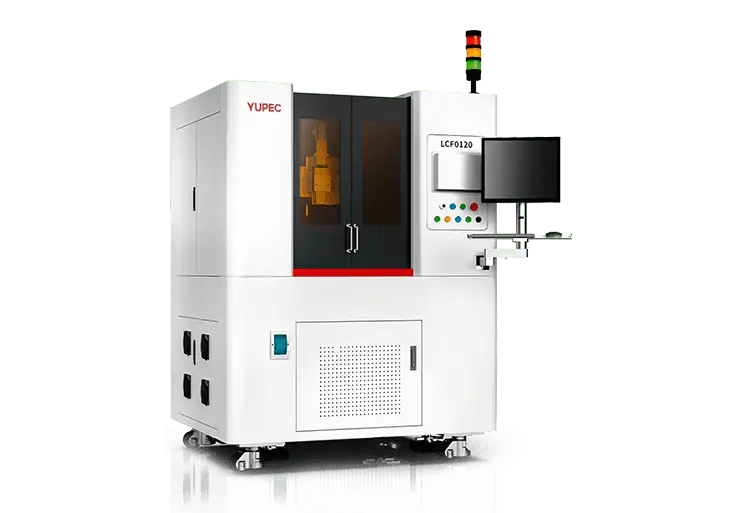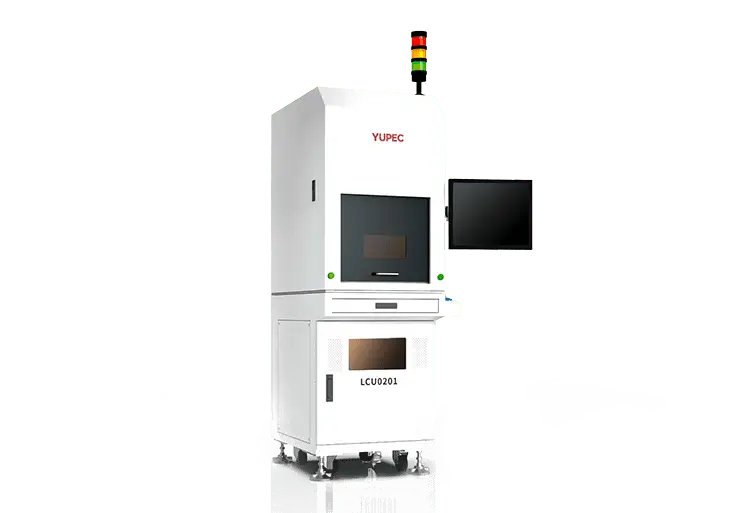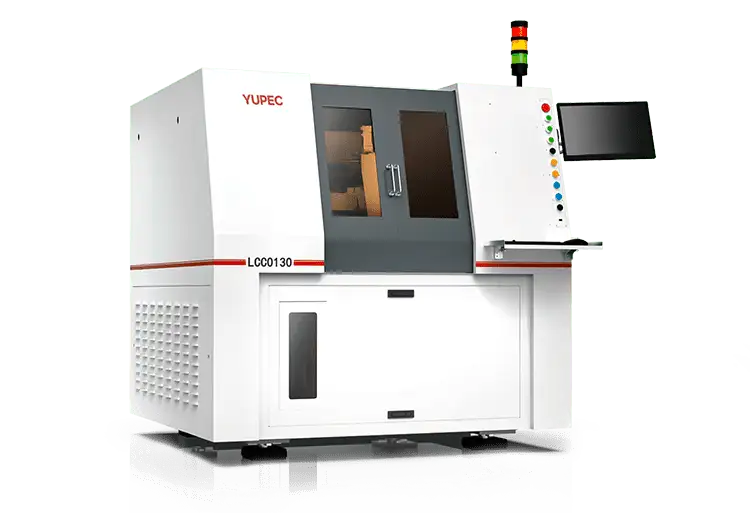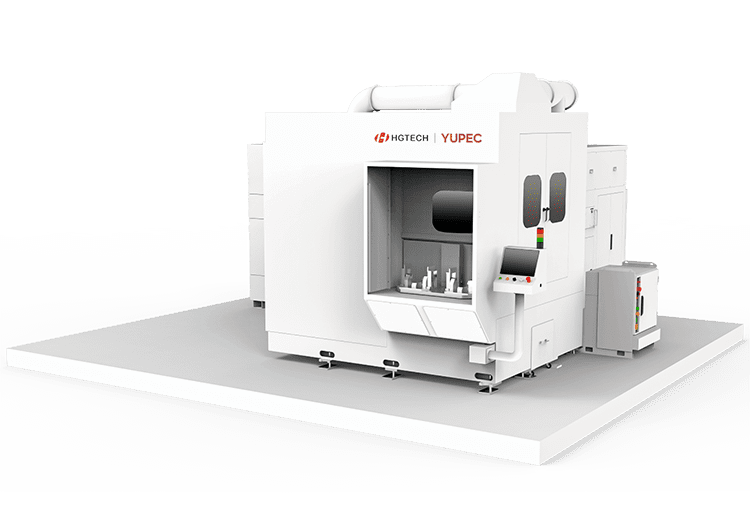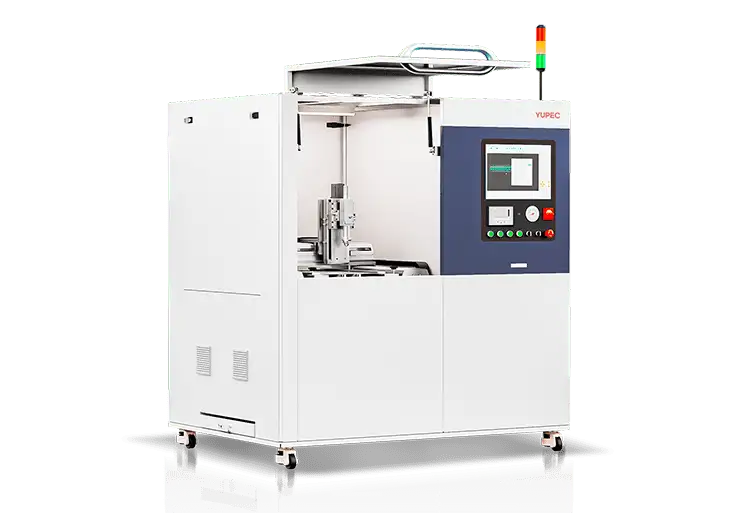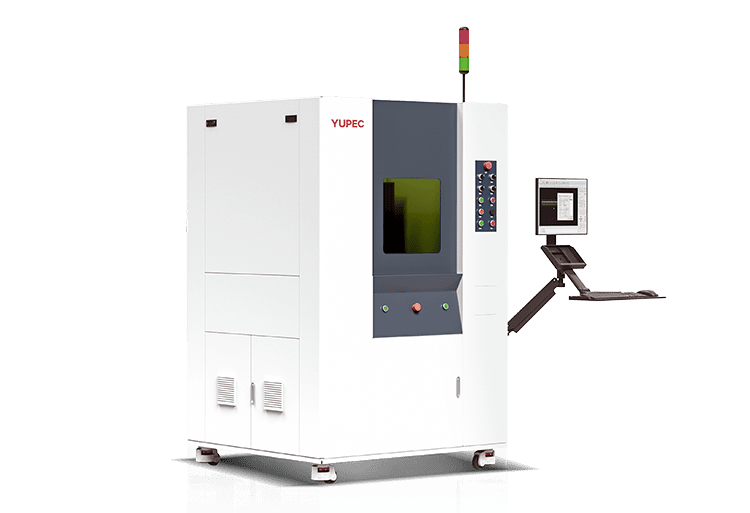A precision laser cutting machine is a device that utilizes a focused laser beam to cut through materials with a high degree of accuracy. It utilizes a high-energy density laser beam to melt, vaporize, or evaporate materials, achieving precise cutting of the material. Precision laser cutting is characterized by high precision, high speed, and non-contact features, making it applicable to cutting various materials, including metals, plastics, glass, ceramics, and more.
Advantages of Precision Laser Cutting Machines
Materials cut with lasers exhibit superior accuracy and edge quality compared to those cut using traditional methods. Laser cutting employs a highly focused beam, serving as a heat-affected zone during cutting, which minimizes thermal damage to adjacent surfaces. Additionally, the use of high-pressure gases (typically CO2) in the cutting process results in cleaner cuts, removing excess material from narrower workpieces and delivering smoother edges. Integrated CNC components facilitate automation, providing a more intuitive operation.
Workplace accidents involving employees and equipment can have a negative impact on a company’s productivity and operational costs. Material processing and cutting operations, including cutting, are accident-prone areas. Using lasers for these applications reduces the risk of accidents. Since it’s a non-contact process, it means that the machine doesn’t physically interact with the material. Additionally, the generation of the laser beam doesn’t require any direct operator intervention, keeping the high-power beam securely enclosed within a sealed machine. In most cases, apart from inspection and maintenance operations, laser cutting doesn’t require human intervention, minimizing the potential for employee accidents and injuries compared to traditional cutting methods.
In addition to cutting complex geometries with higher precision, laser cutting allows manufacturers to cut various materials without the need for mechanical adjustments, offering a broader range of thicknesses. Using the same beam with different output levels, intensity, and duration, laser cutting can cut a wide variety of metals with similar adjustments, ensuring higher precision and stricter tolerances. Integrated CNC components facilitate automation, providing a more intuitive operation.
The time spent on setup and operating manufacturing equipment increases the overall production cost for each workpiece. Utilizing laser cutting methods reduces the total delivery time and the overall production cost. Unlike traditional cutting methods, laser cutting doesn’t require mold changes and setups between materials or material thicknesses. Setting up a laser cutting process involves more machine programming than material loading. Moreover, using laser for the same cuts can be up to 30 times faster compared to traditional saw cutting.
By utilizing laser cutting methods, manufacturers can minimize material wastage significantly. The focused laser beam used during the cutting process generates narrower kerfs, reducing the size of the heat-affected zone and the quantity of unusable materials. When working with flexible materials, deformations caused by mechanical machine tools increase the quantity of unusable materials. Laser’s non-contact cutting eliminates this issue, enabling cutting with higher precision, stricter tolerances, and reduced material damage in the heat-affected zone. Allowing parts to be placed more closely on the material reduces material wastage, lowering material costs over time.
Expand to learn more
Precision Laser Cutting Machines for Different Materials
Precision laser cutting technology plays a crucial role in the field of materials processing, especially in cutting metals and non-metallic materials. Here are some common materials and their applicability:
- Metals: Metals are a primary application for precision laser cutting. Stainless steel, aluminum, copper, and steel are commonly used to manufacture various components due to their good thermal conductivity and mechanical strength. Different types of metals may require different types of laser sources and parameters.
- Plastics: Plastic materials, such as polypropylene, polyvinyl chloride (PVC), and polystyrene (PS), have a wide range of applications in precision laser cutting. Laser cutting can create clear cuts in complex shapes and contours, making it suitable for manufacturing electronic enclosures, toys, and parts.
- Ceramics and Glass: Laser cutting is also used for cutting and engraving ceramic and glass materials. In the electronics industry, glass is commonly used for manufacturing displays, while ceramics are used for electronic components.
- Wood: Precision laser cutting is highly useful for cutting and engraving wood, which finds extensive applications in furniture manufacturing and construction. Various hardwoods and plywood can be cut and engraved to meet design requirements.
- Composite Materials: In the aerospace industry, composite materials are extensively used, typically composed of fiber-reinforced resin composites. Precision laser cutting is crucial for precisely cutting these composites to ensure part quality and performance.
Precision laser cutting technology plays a crucial role in various application areas and materials, providing efficient, accurate, and flexible solutions for the manufacturing industry. The choice of materials and their suitability depends on specific application requirements, making an understanding of different materials’ characteristics crucial for achieving the best cutting results.
Applications of Precision Laser Cutting Machines
When it comes to the application areas of precision laser cutting, this technology is widely used across various industries, offering endless possibilities for manufacturers and designers. Here are some detailed insights into key application areas and the materials associated with them:
- Electronics Industry: In the electronics manufacturing sector, laser cutting is indispensable for precise shaping of circuit boards, semiconductor components, and displays. Common materials comprise silicon, ceramics, glass, and plastics for electronic components.
- Medical Device Manufacturing: In the production of medical devices, precision laser cutting is crucial for manufacturing medical instruments, implants, and precision components. Common materials include stainless steel and titanium alloys for surgical tools and implants, while plastics and ceramics are used for various medical components.
- Automotive Manufacturing: The automotive industry extensively utilizes precision laser cutting for cutting and shaping body parts, exhaust systems, and engine components. Primary materials include steel, aluminum, and other metals, as well as plastics and composite materials for interior and exterior components.
- Aerospace: Precision laser cutting plays a pivotal role in the aerospace sector, used for manufacturing aircraft parts, engine components, and spacecraft parts. High-strength metal alloys, titanium alloys, and composite materials are the primary materials used.
- Furniture Manufacturing: In the realm of furniture manufacturing, laser cutting is employed for cutting and engraving wood, plywood, and other components, enabling highly customized furniture production.
- Construction Industry: Precision laser cutting is also used in the construction sector for cutting both metal and non-metal materials to manufacture structural and decorative elements.
Send us a message
Don’t hesitate to ask, we usually reply in 24 hours or less!
Contact Information
Yupec Laser Germany GmbH
Itterpark 2, 40724 Hilden, Germany
- +49 2103 9674 492 / +49 2103 9676 682
Company Details
Yupec Laser Germany GmbH
Amtsgericht Jena, HRB 519333
Ust-Id~Nr. DE3552294798


